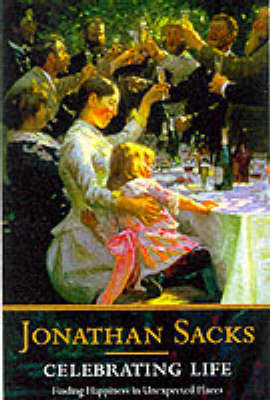Continuum Compact
2 total works
This is a collection of short meditations on happiness which began with the 'Credo' columns written for The Times. 'In these meditations, I've tried to say what happiness is, how we make it, how we lose it, and how we sometimes walk past it without recognising it. We miss it by looking in the wrong places. In consuming, as if it were something we could buy. In leisure, as if it were somewhere we could escape. In changes of relationship and lifestyle, as if it were just over the horizon. It isn't somewhere else; it's where we are.' Rabbi Jonathan Sacks This is a delightful collection of short pieces reflecting on life, families, children, community, faith, friendship and hope. Rabbi Jonathan Sacks has rewritten his original 'Credo' articles and made them the starting point for this new book.
Sacks argues that faiths must remain open to criticism, keep alive their separate communities and still contribute far more to national debates on moral issues. they must also learn to get along better. His thesis is that we still live under a Biblical canopy and that a cohesive morality needs the uniting bonds of faith. Confidence in a faith is a subtle quality and lack of it shows in many ways, some contradictory. Dr Sacks has that confidence and the quiet charisma to communicate it. The subject of this book - religions and ethics - is good ground for him to build on: The Jewish contribution to ethics is distinctly rational and has a long and illustrious tradition. Moral philosophy is after all a Jewish preoccupation. In recent years, he writes, religion has taken us unawares. The rise of the Moral Majority in the USA, the Islamic Revolution, the growth of religious parties in Israel, the power of Catholicism in Poland and the African continent all run contrary to the basic thesis that modernity and secularisation went hand in hand and could almost be regarded as synonyms. Instead and against all predictions religion has resurfaced in the public domain.

